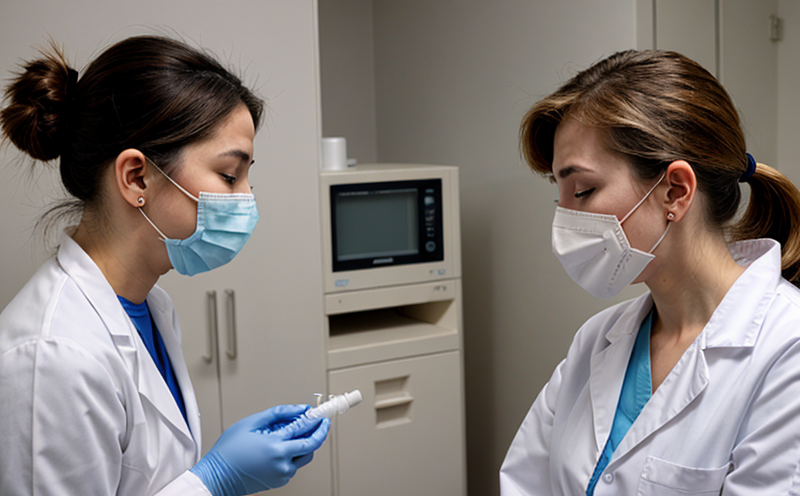Shellfish Allergen Testing in Crustaceans and Mollusks
In today's diverse food industry, ensuring product safety is paramount. Shellfish allergens pose significant risks to individuals with shellfish allergies. This service focuses on the detection of potential allergenic proteins derived from crustaceans (such as shrimp, lobster, crab) and mollusks (like oysters, mussels, scallops). The test ensures that food products labeled as “shellfish-free” or similar do not contain harmful trace amounts of these allergens.
Shellfish allergies are among the most common and potentially life-threatening food allergies. According to recent studies, approximately 2% of adults and 4-6% of children in North America have a shellfish allergy. The primary allergenic proteins responsible for such reactions include tropomyosin, which is found in both crustaceans and mollusks.
Given this context, our laboratory uses advanced techniques to detect even trace amounts of these allergens. Our testing method adheres strictly to international standards like ISO 15216-1:2016 for seafood allergen detection. We also utilize state-of-the-art equipment such as ELISA kits and mass spectrometry (MS) which can identify specific proteins at extremely low concentrations.
Our comprehensive testing process involves several key steps: - Sample preparation: The sample undergoes extraction to ensure that all potential allergens are released into the solution. - Detection: Using sophisticated immunoassay techniques, we measure the levels of tropomyosin present in the sample. - Confirmation: If initial results suggest the presence of allergens, further confirmation may be required using mass spectrometry for absolute identification.
The importance of accurate and reliable testing cannot be overstated. Mislabeling or contamination can lead to severe health consequences. This service not only protects consumers but also ensures compliance with regulatory requirements such as the Food Allergen Labeling and Consumer Protection Act (FALCPA) in the United States.
Our team of experts works closely with clients to ensure that each step of the testing process meets their specific needs. Whether you are a manufacturer looking to verify the safety of your products or a regulatory body ensuring compliance, we offer tailored solutions.
Scope and Methodology
The scope of our shellfish allergen testing service extends beyond mere detection; it encompasses the entire process from sample collection to final report generation. Our methodology is designed to be both rigorous and flexible, allowing us to adapt to the unique requirements of each client.
Sample Collection: Clients must provide samples that are representative of the product being tested. This could range from raw materials used in production to finished goods ready for sale. Proper collection ensures accurate results.
Preparation and Extraction: Samples are prepared according to standard protocols before extraction processes begin. This step involves breaking down complex matrices into simpler components, making it easier to detect allergens.
Detection Techniques: Our laboratory employs multiple methods including ELISA kits and mass spectrometry for accurate quantification of tropomyosin levels in samples. These techniques provide precise measurements that can differentiate between minor contamination and true adulteration.
Confirmation Steps: For any positive findings, additional confirmatory steps might include DNA sequencing if necessary to pinpoint specific species or further testing using Western blotting techniques for more detailed analysis.
Benefits
The benefits of our shellfish allergen testing service are multifaceted, impacting both the safety and reputation of your products:
- Consumer Safety: By ensuring that no harmful levels of shellfish allergens are present in processed foods, we protect vulnerable populations from potential adverse reactions.
- Regulatory Compliance: Adherence to strict regulatory standards helps prevent costly legal issues and maintains good standing with authorities.
- Brand Reputation: Consistent quality control demonstrates a commitment to excellence, enhancing brand loyalty among consumers.
- Supply Chain Integrity: Ensuring that every link in the supply chain is free from contamination strengthens trust within your network of suppliers and distributors.
Customer Impact and Satisfaction
Our clients benefit significantly from this service, which has led to high levels of customer satisfaction across various sectors. Here's how it impacts them:
- Quality Assurance: Our rigorous testing process ensures that only safe products reach market shelves. Cost Efficiency: By avoiding recalls and legal action, businesses save money on associated costs.
- Market Access: Meeting stringent safety standards opens up new markets for food producers.





